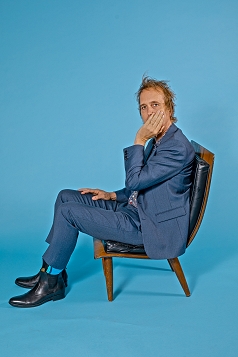Harp
Looting the Bins With Chuck Prophet
A walk through the used record bins of some of the country’s finest music stores with musicians, both famous and infamous.
“You hear that?”
Standing outside Open Mind Music on an impeccably beautiful sunny San Francisco day, Chuck Prophet points down Market Street, cocks his ear and waits. A few seconds later, a siren blares in the distance.
“Every Tuesday at noon, the city tests their emergency warning system,” Prophet explains. “It goes for like ten or fifteen seconds and then it’s over, but I like the idea that everyone in this neighborhood hears that. It’s a part of anyone’s life who lives around here.”
Prophet’s knack for these kinds of intimate details – pervasive in his songwriting – is the mark of the long-time Bay Area denizen. Though he was born and bred in Southern California, the singer-songwriter has lived in San Francisco since joining cult-favorite Americana rockers Green on Red in the mid-1980s as a prodigious 18-year-old guitar talent. After the band dissolved in 1992, Prophet focused his efforts on his burgeoning solo career, recording a string of albums beginning with 1990’s Brother Aldo and culminating with Soap and Water, his latest opus released in early October on Yep Roc Records.
“Hanging out in record stores was pretty much what I did growing up,” Prophet says as he swings open the door to Open Mind Music and tosses a casual hello to Henry, the store owner. “The Music Box in La Habra, California was where I bought my records. Back then, they usually cost $3.98 and I remember agonizing over the decision on which record to buy every time I went in there. It would take me all week to decide what I was gonna get.”
Growing up in Whittier, California, Prophet wasn’t too far from either the rock and roll of the Sunset Strip or the surf spots that dot the coast along the Pacific Coast Highway.
“I lived in a neighborhood in Orange County growing up that if you shook a tree, five guitar players would fall out. Everybody played guitar and everyone surfed. It was that type of culture back then,” he says. “My girlfriend in the seventh grade bought me Hunky Dory for my birthday. Bowie records were definitely big around my house. I had an older sister was an old-school hipster and we got all the new records when they came out. What’s astonishing about Bowie during that time period is the diversity of his albums You can go from Hunky Dory to Ziggy Stardust to Aladdin Sane to Diamond Dogs and then you blink and he’s in Philadelphia doing Young Americans. The breadth of the music he created in only about three or four years is just astonishing, especially when compared with what’s going on today. And it’s not like he fell on his face doing it either. Bowie was big in our house, no doubt about it. Still is.”
Like so many other young guitarists, Prophet cut his teeth by playing along to records in his bedroom.
“I learned a lot about playing guitar by listening to old Van Morrison albums,” he says, holding up a copy of Morrison’s 1967 debut, Blowin’ Your Mind. “‘T.B. Sheets’ is the song I really learned how to play guitar off of. A lot of that double-stop, ‘Brown-Eyed Girl’-like guitar that I play I mostly picked up from by listening to old Van Morrison stuff. I think a guy named Eric Gale, who was an old jazz guitarist, did the guitar playing on those albums. His playing was big for me as I started playing guitar.”
While Van Morrison may not be an influence Prophet readily wears on his sleeve, Bob Dylan certainly is. Whether it’s in the detailed imagery of his lyrics, the blues-flecked energy of his guitar playing or his not-so-mainstream nasally voice, it’s pretty obvious from his music that Prophet is a Dylanphile.
“We all know he’s the master; no one’s gonna argue with that,” he says, thumbing through the Dylan vinyl. “I really liked Under the Red Sky a lot. No one really gives him credit for the albums he did in the ‘80s and early ‘90s. I like Dylan when he’s in his devil-may-care place. That’s why Dylan is a great live show – even when he’s at his worst, he’s incapable of being uninteresting. It’s not so much that he’s the greatest living American songwriter, though that’s part of it certainly. But it’s also the ease with which he does it and how cool it is. You never really see Dylan ever work that hard. I admire that about him a lot. I’ve probably bought all of Dylan’s albums at least three times. I enjoy the thrill of getting something I like the second time. I probably own five copies of Leonard Cohen’s Greatest Hits. Sometimes I buy it just to make myself feel good.”
J.J. Cale’s Naturally is another record Prophet puts on a pedestal. The Oklahoma troubadour’s 1971 debut album followed on the heels of Clapton’s version of Cale’s “After Midnight,” but Naturally does not pander to the blues-rock of Slowhand’s successful cover. Instead, Cale issued a sublime, country-rock classic that focuses more on the boogie and less on the bravado.
“Naturally may be the greatest auteur record of all time,” Prophet professes. “J.J. wrote all the songs, played on it, put the band together and produced it. I think he may have even engineered a lot of it himself as well ‘cause it’s got this strange sound to it. I love that record ‘cause J.J Cale never turns his solos up. I always get a lot of shit for not turning my solos up. J.J. is a real abstract expressionist. All of the songs on Naturally are like two-and-a-half minutes long, but it’s the perfect record.”
Perfection is a concept Prophet returns to time and time again throughout our trip to Open Mind Music, whether it’s in regard to Dylan, Cale or Alex Chilton, frontman for The Box Tops and Big Star. Calling Big Star’s 1978 classic album Third/Sister Lovers “the perfect marriage of the street and the regal,” Prophet remembers the first time Green on Red opened for Chilton’s post-Big Star trio at Atlanta’s 688 Club in the mid-‘80s.
“The 688 was one of those clubs where the back door behind the stage opened up into the parking lot. As we’re wrapping up our soundcheck that day, I see this ’72 Buick Skylark pull in blowing huge plumes of blue smoke,” he recalls. ‘These three guys roll out of the car and pull a little jazz kit out of the trunk along with a tiny Peavy bass amp and a Fender Super Reverb and set them onstage. Alex reaches in the back of the Super Reverb, pulls out a clean shirt – his gig shirt – and takes his other shirt off and stuffs it into the back of the amp. He straps on a harmonica rack, tunes up, clicks his heels four times and just made everything that we did completely forgettable. I can’t remember what music I was into at the time – maybe Tom Verlaine or Neil Young – but at that moment, it was all about Alex.”
With both his new album and the Kelly Willis’ Prophet-produced Translated from Love garnering critical praise, Prophet isn’t resting on his laurels. With his Mission Express band in tow, Prophet recently returned from a European tour and just embarked on a U.S. tour to support Soap and Water. In between gigs, he’s been squeezing in writing sessions with old friend Alejandro Escovedo for a future album.
“Writing with Al has been so much fun,” Prophet says with a laugh. “One of things Al and I like to do when we write together is sit down and just tell each other stories and usually a song will appear out of it. If that doesn’t work, we turn off all the lights, lie on the ground and put on the Mott the Hoople. Ian Hunter is such a brilliant lyricist. All the Young Dudes is worth the price of admission on the title track alone.”
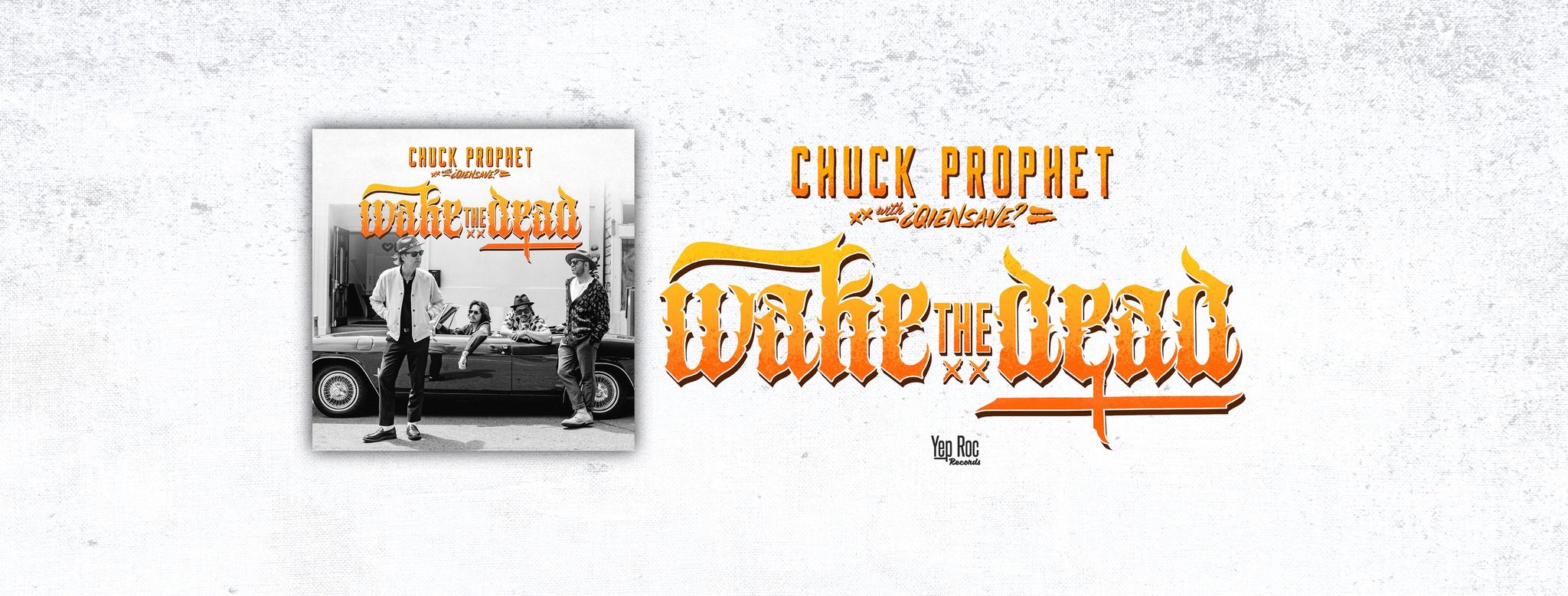




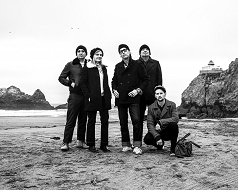
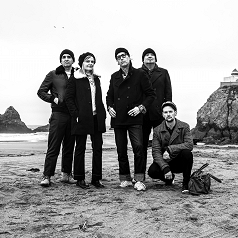
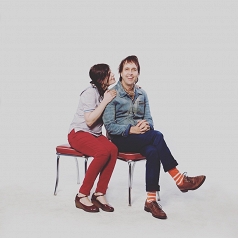
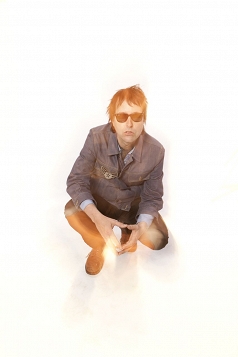
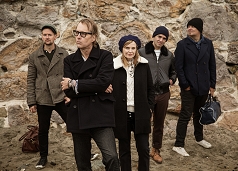
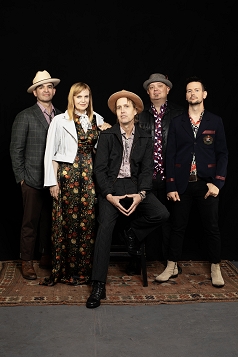
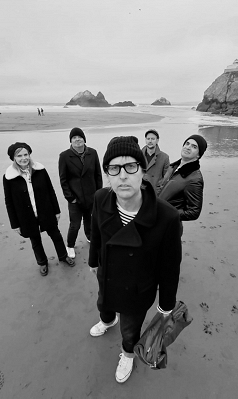
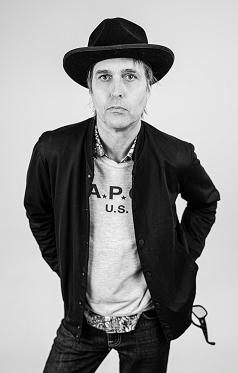
3_238_159auto_s_c1.jpeg)
